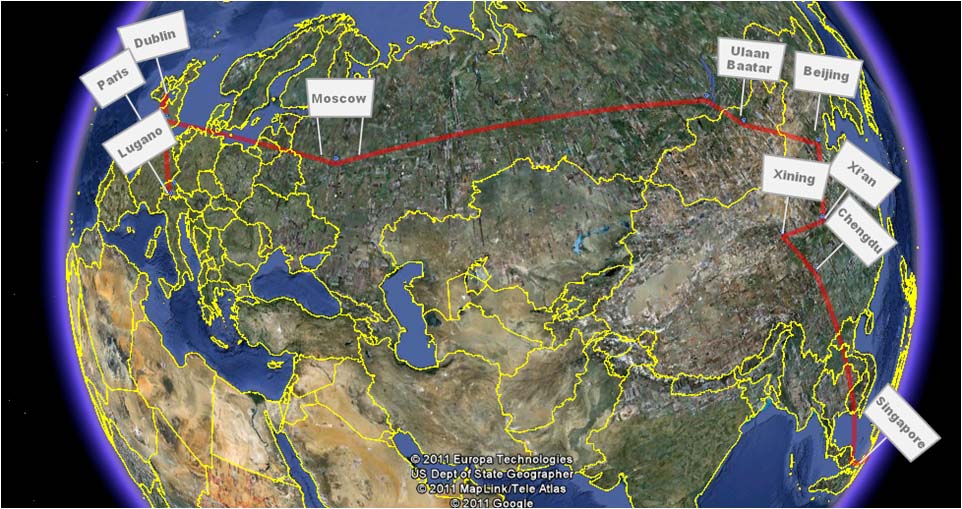Out onto the Steppes
Last night would have been the first and best long night’s rest in ages, had it not been for the overconsumption of food and alcohol …. So out of character for either an Irish man or an Australian woman!!
To make matters worse, at breakfast we had to endure some young know-it-all US students who were doing a semester in UB, and felt obliged to let everybody hear their moronic conversation about the merits of Dickens over some obscure (to us anyway) Asian writer. Strolling into the breakfast room in their PJ’s topped it off … we had to leave before we said something,
Instead, we took our pleasures from a tour of a Buddhist monastery, one of many that were crushed by the communists during their many years in power. At least some of the buildings here survived, unlike 900 that were physically demolished. After that a quick race around the Museum of Mongolian history … fascinating …before we had to head off out onto the steppes to our ger camp. My understanding is that gers and yurts are the same, but perhaps there are design or tribal differences, because I do know that the styles vary across Mongolia.
And we see a well known hazard, and one good reason for not venturing out after dark … see the manhole
Once we battled the horrendous UB traffic, we were treated to the pleasure of bigger potholes, and once that improved we only had to dodge the wandering horses, goats, cows and sheep. At least the camels enroute staying well away from the road. The good thing about the potholes is that it keeps speeds down to 60-80 kph, which is a blessing given the driving styles.
The emptiness of the steppes is truly amazing. Not a tree as far as the horizon, and very thin grass over 100’s of miles of rolling hills, with seriously big mountains in the distance. The lowest point of Mongolia is about 400m altitude, Ulaan Baatar is about 1,300 metres, and there are lots of peaks over 4,000 metres, especially in the West.
The last umpteen kms are on dirt roads … and at a much higher speed than was possible on the main roads … but it was also much more relaxing. We passed by lakes, rivers and even went across a dry river bed under a bridge … all in a little Japanese sedan.
 |
| But then he did have the biggest empire ever ... and he was a socialist at heart ... even abolishing torture |
|
| De Goin' home after 14 years |
At Steppe Nomads, nobody speaks English. The girl in charge, Gege, had a few words, but if often leads to confusion and misinterpretation as to clarification. So meals times, showers times, etc are all at very precise times, but we’re not quite sure, not is Gege, what those specific times would be.
Steppe Nomads is set in a nature reserve … and is specifically Eco-friendly. So there is no electricity (other than some solar panels), no lights (just candles), there are no phones (other than Gege’s mobile which has dodgy reception out here), hot water is only available from 4pm till 10pm (because it has to be heated using wood in a stove). But they do have a bar, with a single bottle of white wine (Autralian) but plenty bottles of my favourite Khar Khorum (dark local beer). Oh, and the ger itself is fanbloodytastic.
Rather than everybody get confused about quantities and prices of the wine, we just buy that last remaining bottle. Oh, there are no other guests this early in the season, so it’s not like we’ll have competition for the alcohol, but habits are hard to break.
As is the tradition, we have several drinks … and then have dinner … 5 items that look like Cornish pasties, but are mutton and cheese inside … that’ll fill us up. By then the ger keeper has lit our fire (a little pot belly in the middle of the tent, which heats up to baking temperatures in a few minutes, but goes cold within another 20 minutes if you don’t keep piling wood into it. So it’s either bake or freeze, because the nights are really cold.
In a short time, because of the cold, we put our heads onto the rice-filled pillows (seriously, and they are really comfortable), and start to dream of Genghis Khan and his hordes.




























































